
At Manna Academy Secondary section, our aim is to prepare students to meet both the local and international standards of education through British (Cambridge) WAEC and NECO curricular. At the Nursery and Primary levels, our aim is to ensure that every child learns through access to a broad and balanced curriculum which is adapted to challenge and support individual children.
We strive to create a stimulating, learner-centred approach which will engage all children and make them want to learn. Hence, our inclusion of MONTESSORI methodology and JOLLY PHONICS programme in our teaching style. This means that they will develop a love for learning, confidence in themselves and a natural curiosity which will stay with them for life. We monitor children’s progress and development carefully so that new skills and ideas can be introduced as soon as a child is ready to progress to the next stage of learning. We believe that, children learn most effectively from first hand experiences and we provide these through practical lessons and by offering a wide range of off-site learning enrichment opportunities, knowledge of the world and emotional intelligence (EQ). At Manna Academy, we are intentionally working on developing individuals that have an outstanding degree of both IQ and EQ.
Our curriculum, provide opportunities for all pupils to learn and achieve and it promotes each learner’s spiritual, moral, social and cultural development. We know that the mental health and well-being of our children is critical to success in school and life, so education about mental health and well-being is an integral part of the school curriculum. We also ensure that we prepare learners for the opportunities, responsibilities and experiences of life in modern Nigeria and international communities. These include:
• Democracy
• The rule of law
• Individual liberty
• Mutual respect
• Tolerance of those of different faiths and beliefs
Our planning for teaching and learning incorporates the Early Years Stage (Nursery and Creche) and the National Curriculum (Key Stage One & Key Stage Two).
Our children continue on from their Nursery or pre-nursery setting to complete the last year of the Foundation Stage. In the Nursery and Pre-Nursery classes four guiding principles shape our practice:
1. Unique Child: every child is a unique child, who is constantly learning and can be resilient, capable, confident and self-assured.
2. Positive Relationships: children learn to be strong and independent through positive relationships.
3. Enabling Environment: children learn and develop well in enabling environments, in which their experiences respond to their individual needs and there is a strong partnership between teachers and parents and/or guardians.
4. Developing and learning in diverse ways: children develop and learn in different ways and at different paces.
We have a three-year overview of topics in nursery which is designed to provide a broad balanced curriculum covering the early years stage of learning and development which include basic areas of learning and specific areas of learning for solid foundation as highlighted below:
Basic Areas of Learning:
• Communication and Language
• Physical Development
• Personal, Social and Emotional Development
Specific Areas of Learning:
• Literacy
• Mathematics
• Understanding the World: civic & social studies
• Creative Arts and Culture
We follow the children’s interests when planning for each group of pupils and recognise the importance of involving the learners in choosing activities and resources. Child-centered learning is an important part of our daily routine and whenever possible adult–directed activities are play based, active and related to the children’s interests. Children and parents are encouraged to be involved in the next steps for learning through the children’s learning journey and parent consultations.
At Manna Academy, our learning materials are quite accessible which enables parents and guardians to easily access information about their child and make an important contribution to their child’s learning and development. All areas of learning are given equal emphasis and are interrelated.
We aim to help children with their learning through observing (self motivation/curiosity), getting involved in their play(collaboration), supporting their thinking (critical thinking) and asking open questions (feedback).
We follow the National Curriculum. In both Key Stages. Our pupils study the following subjects:
• English
• Mathematics
• Basic Science and Technology (BST)
• ICT
• Cultural & Creative Arts (CCA)
• Religion and National Values (RNV)
• Nigerian Languages
• Social Studies
• Music
• Physical Education
• Religious Education
In Key Stage 2 the children study French as an additional subject.
For each subject, national programmes of study set out what pupils are taught. We ensure that the objectives from these programmes are incorporated into a curriculum map for each year group where as many opportunities as possible are provided for cross-curricular links and application. Teaching through topics and making links between subjects allows us to bring about creativity and give learning tangible meaning. We ensure pupils have opportunities to develop and apply their communication and computing skills in all subjects and enquiry skills are developed through science, civic and social studies. We promote creativity which involves thinking imaginatively, working purposefully, being original and having an outcome that is of value in relation to the objectives.
We also value education for sustainable development which enables pupils to participate in decisions about the way we do things, both locally and globally, that will improve the quality of life now without damaging the planet for the future. There are opportunities for pupils to develop their understanding of sustainable development within the school curriculum, in particular their work in personal, social and health education.
We encourage pupils to reflect on what and how they learn. They consider how the skills they develop can be applied to different subjects, different problems and real-life situations. In Key Stage 1 and 2 Maths and English are taught daily. Other subjects are incorporated into a weekly timetable to ensure appropriate and equal coverage. Our subject team leaders coordinate teachings and regularly review and evaluate curriculum provision across all National Curriculum subjects.
This is the starting point for the secondary section. Entrance examinations comprise English, Maths and General Paper (i.e. current affairs and sciences). A particular time is set aside for this within the school calendar. This section aims at ensuring a smooth transition from elementary to the secondary school. The curriculum is integrated (a combination of Nigeria and British systems) covering both academic and pre-vocational subjects which will enable our learners have a wide range of options in the Sciences, Humanities and Arts when they get to the senior secondary level, Also, they will be fully prepared for basic education certificates in WAEC/NECO and Cambridge Checkpoint examinations
Mathematics
Maths is taught for an hour daily. Our maths curriculum includes all aspects of the National Curriculum and is designed to provide a link between mathematics and the real world. Links are also made between different curriculum areas whenever possible. We want the children to be confident in applying mathematical skills, concepts and knowledge and to be able to solve problems sensibly and systematically. We aim to foster a culture of independence and resilience where the children learn from their mistakes. The primary school pupils’ number fluency skills and mental maths are to be developed through structured teaching and repetition. Practical learning is an essential component of our approach to teaching mathematics and this is reflected in the assessment framework we use to track progress and attainment. We want all children to enjoy maths and feel challenged from their own starting point in every lesson; therefore, pupils are assessed regularly in class in order to inform planning and to check progress.
English
Our teaching of English involves five basic areas of the National Curriculum.
1. Phonics (oral English) and spelling.
In the nursery, we teach phonics and reading. Children are streamed into phonics groups from pre-nursery and assessed at least mid-termly. It will interest you that phonics lessons are taught daily and in the Language laboratory! Our aim is that all children will have completed the phonics programme by the end of Year 1, with some children making more speedy progress through the scheme. After this, the children move onto articulation and spelling activities which directs a systematic programme of study from primary1 up to 6.
2. Reading
Reading is taught through small group guided reading sessions delivered by both a teaching assistant and a teacher. This is supplemented by home/school reading texts and weekly library work. Some children receive 1-1 reading support daily. At the Primary level, we adopt a whole class book study approach to teaching reading, with a particular focus on vocabulary capture, reading for fluency and developing of a range of comprehension strategies to support text understanding. Some children will still have home/school reading assignments and all children have time-tabled library projects.
3. Grammar and Handwriting
Grammar focuses on the functional knowledge of English Language such as the systematic teaching of grammatical structures and correctness. Handwriting is taught daily, especially from Primary 1 to 3 and a club session once a week. In Key Stage 2 handwriting is integral to the English lessons, with extra sessions in place for children who find handwriting more difficult.
4. Speaking and Listening
Speaking and listening objectives are taught within the English curriculum. In addition, there is opportunity in term 3 for all Key Stage 2 children to enter a Speech Cup competition. This is supported by in-class learning and means that the children learn how to speak in public and address larger groups of children and adults.
5. Writing
At Manna Academy, English (specifically writing) is taught. Each class has a curriculum map of writing topics across the year that tie in with their topic learning theme. The curriculum map ensures that the children learn how to plan, write and edit fiction and non-fiction texts. In English, we ensure that during the first part of a unit pupils are able to immerse themselves in a text and learn important vocabulary and writing ideas. After this they are taught specific sentence objectives to ensure that they can apply their grammar skills in their writing. Finally, they write a first draft independently and then use their ‘edit and improve’ skills to correct and refine their writing. This finishes in a published piece of writing for every unit.
Basic Science and Technology
In science we teach the children scientific knowledge and understanding through different types of science enquiries. We want to encourage children to be curious about the world around them and to enjoy exploring and observing science in everyday life. We believe that it is important that children develop an understanding of important scientific ideas and processes and they are able to confidently communicate this knowledge to others. Whenever possible we link science learning to topic learning; for example, in Year 1 the children have a topic theme of ‘toys’ and they investigate the different materials that toys are made of as part of the science curriculum.
Computing
As well as being taught discretely, we build in opportunities for the use of computing in all subject areas. We use the interactive whiteboards, desktops and tablets to aid our teaching and involve the children. Keeping safe online is an integral part of our computing curriculum. Therefore, this is referenced in every computing lesson as well as being reinforced by regular assemblies and an e-Safety week.
The computing lab enables a class to work independently on a variety of packages such as Microsoft Office, educational programs, web and cloud-based resources. Computational thinking is taught to all year groups. By the end of primary 4 or 5, the children will have learnt to create animations, manipulate sound, code, blog, email, use Word, PowerPoint and spreadsheet skills.
Religious Education
In RE the children have two main areas of focus:
1. Learning about Religion
This includes the ability to build a coherent picture of each religion, explain the meanings of religious language, stories and symbolism and explain similarities and differences between, and within, religions.
2. Learning from Religion
This includes the ability to respond to religious and moral issues in an informed and considered manner, reflect on what might be learnt from religion in the light of personal beliefs and life experience and identify and respond to the question of meaning within religion. Years 3 and 4 learn about Christianity or Islam. Year 5 study rules for living, light as a symbol, celebrations linked to key figures, religious leaders and ultimate questions. (Christianity or Islam) Year 6 learn about Christianity Founders of Faiths and Religion in World Affairs. We focus on comparing religions, looking for similarities and fostering an understanding, tolerance and respect towards others.
Parents have the right to withdraw their children from religious education. If you would like to discuss this, please contact the school office.
Art
Art is taught within the topic theme so that the children can apply their knowledge and understanding of the context to their art work. Within each year group the children learn how to work with different materials and apply different techniques. For example, in every year group, the children learn techniques for printing, collage, sketching, painting, and how to use textiles. They also learn how to make 3D sculptures using different materials and how to use Digital Media to produce art. The work of well-known artists is referenced wherever possible. Examples include: Gaudi, Caulfield, Moore and Picasso.
Music
In Key Stage 2 music is taught by a subject specialist and the skills of listening, appraising, performing and composing are taught through analyzing different types of music. In Key Stage 1 music is taught by a music specialist every week.
Physical Education
PE is taught for two hours a week. The children are expected to take part in gymnastics, dance, games and outdoor and adventurous activities. Extra- curricular sports opportunities are an important extension of our PE curriculum; the children in Key Stage 2 have the opportunity to compete with other schools in football, netball, athletics, basketball and other sports competitions.
PHE (Physical and Health Education)
Classes participate in regular ‘circle time’. Health education focuses on keeping healthy in both mind and body, the safe use of medicines and drugs and the dangers of smoking. In Year 5 and Year 6, pupils are taught about puberty, conception and birth. Parents are informed when Sex and Relationships lessons take place in Years 5 and 6 and are invited into school to see the materials to be used and to discuss the programme of work. Parents have the right to withdraw their children from sex and relationships education. If you would like to discuss this, please contact the school office. The policy for sex and relationships education is available for parents. In Year 6, children have the opportunity to become House Captains and occasionally leading an assembly.
French
All children in Key Stage Two learn French. There is a focus on speaking and listening with a small amount of writing, so the children learn songs and poems as well as looking at what life is like in Francophone countries like France.
Homework
Children are set regular homework which includes reading, learning multiplication tables and a variety of tasks linked to all areas of the curriculum. We consider home learning as an opportunity for the children to consolidate their learning from school and thus we ensure that the homework is accessible for all children. In the upper primary, especially Years 5 & 6, we encourage the children to become independent learners because we understand the importance of preparing them for the transition to secondary school. To this end there is an increase in the amount of homework and the responsibility for completing and handing homework in on time, moves to the child.
School Excursions and Off-site Learning
One of the highlights of the year for both Years 5 and 6 are the educative excursions. Wherever possible, the class teachers accompany the children on these journeys. This aspect of learning will sure give a more physical/adventurous experience and marks the end of the primary school years.
Productions
In the Year 6, the children are all involved in an ambitious and high-quality production which involves acting, playing of musical instruments, singing and dancing. This is a well-loved finale to their final year at Manna Academy.
Clubs/Sports and other activities
We offer a variety of extra-curricular opportunities. Clubs vary according to the season and staff expertise but we currently offer, Brave Hearted (martial arts), Creative Minds (book club/public speaking), Nature Lovers (gardening) and ENG (sciences) clubs, football, basketball, table tennis, cheer dance, drama, chess, homework and book club. Instrumental tuition is also available and we plan to currently offer music alongside brass, guitar, voice and piano lessons.
Robotics/Ballet (special packages from Precious & Chima Foundation)
Robotics is gaining momentum in many schools worldwide. Students will be reaping huge benefits such as critical thinking, engagement, creativity and innovation, not just for the present, but also for the future.
Ballet is not just a skill or exercise but a means through which a physically active lifestyle can be developed to help children stay healthy mentally, emotionally, and socially. Their vocabulary is built, discipline is inculcated besides the reinforcement of confidence and creativity in the young ones. Parents are encouraged to register their children for these amazing classes (at 2:00 -3:00p.m. on Tuesdays for lower primary and Thursday for upper Primary and JSS classes) .
Nature Based Education
Nurturing environmental awareness through connecting learners with nature is also our priority. It helps to reduce the symptoms of attention disorders and improves cognitive functioning, socialisation, creativity mental and physical wellness. Leading the children to find joy in nature helps to make them develop eco-friendly attitudes. With nature education, learners are provided with calm, safe and quiet resources for learning. Manna Academy has herbs and plants garden. The courts are furnished with air-purifying vegetation for learning, as children will observe plant growth, describe and give details about them, especially their usefulness to man and medicine. Also, some of the herbs and plants are edible.

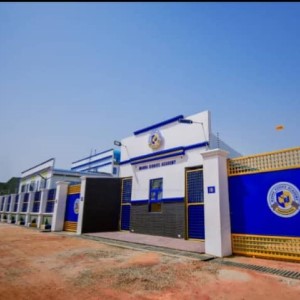
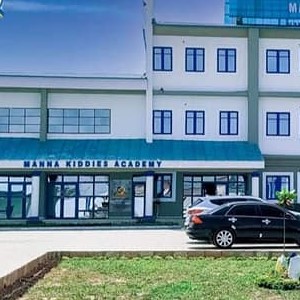
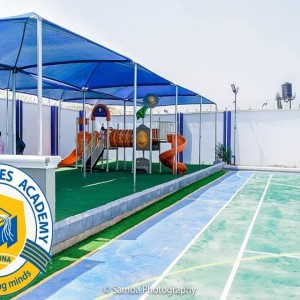
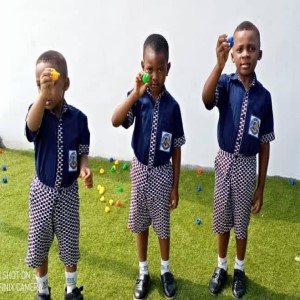
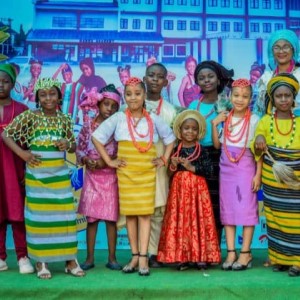
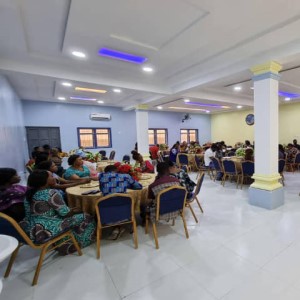
2019 – Date. © Manna Academy, All Rights Reserved. Website Powered by Phoenix Information Technology